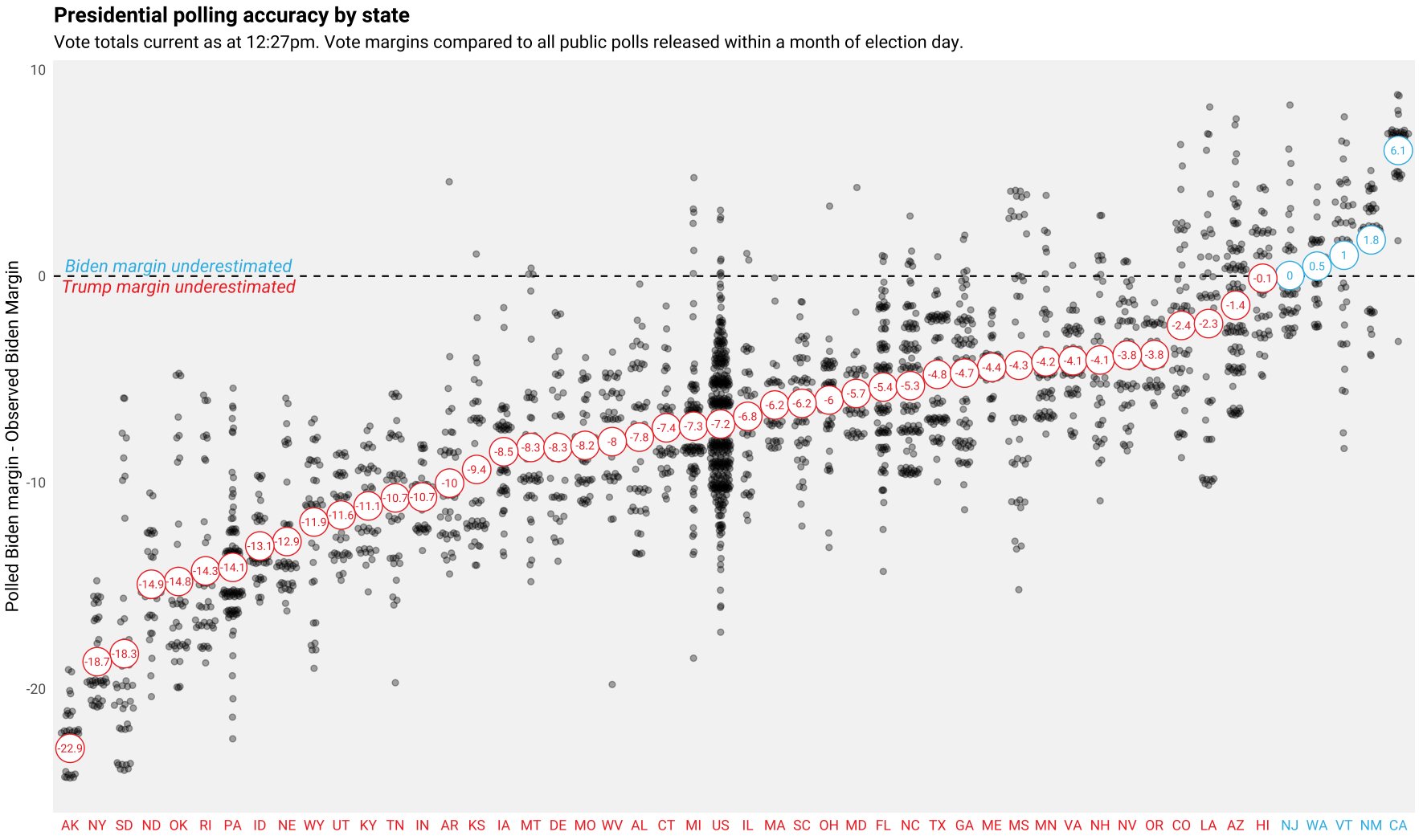Whatever the final outcome of 2020 presidential election would be, it seems that pre-election polls were wrong about Trump — twice in a row and twice as much (circa 8pp) comparing to 2016 forecasts (4pp). What strikes me is that actual numbers for Trump in several states appear a whopping 14-20pp better than predicted.

(source)
Why are pre-election polls appear to be even further inaccurate on 2020 Presidential election — second time in a row and twice as much by numbers?
There are several questions on this site addressing the general problem of forecasting inaccuracy during the earlier elections:
- Why were pre-election polls and forecast models inconsistent with the election of Donald Trump?
- Phenomenon where politically incorrect candidates do better in actual elections than in polls?
- Why did polls inaccurately predict the 2015 UK general election?
Answers to these questions contain some great insights, but I believe that the 2020 election is even more outstanding. The difference between forecasts and actual results 2020 vs. 2016 seem to be twice as much bigger (8pp vs. 4pp). More specifically, here's what has been suggested as reasons for Trump's victory in 2016:
- Social Desirability bias: voters of 2016 could be shy of confessing that they are going to vote Trump because this could be perceived socially unacceptable. However, after four years of Trump presidency, lots of things that used to be unacceptable became the new norm. Also, there are researches that seem to deny the impact of shy-Trump-voters;
- Sampling: Reportedly, in 2016 analysts pointed out that the inconsistency happened because pollsters have not reached a proportional number of certain social groups — e.g., Cuban Americans in Florida or low-educated rural white males who are hard-to-reach but largely pro-Trump. Despite the best efforts of pollsters to adjust their measuring, they seem to have gotten even worse;
- Demobilization due to expected result: seems totally out of the question considering a 120-year-old turnout record.
What systematic problem could it be that pollsters haven't solved since 2016, and moreover, seems to be worse this time?